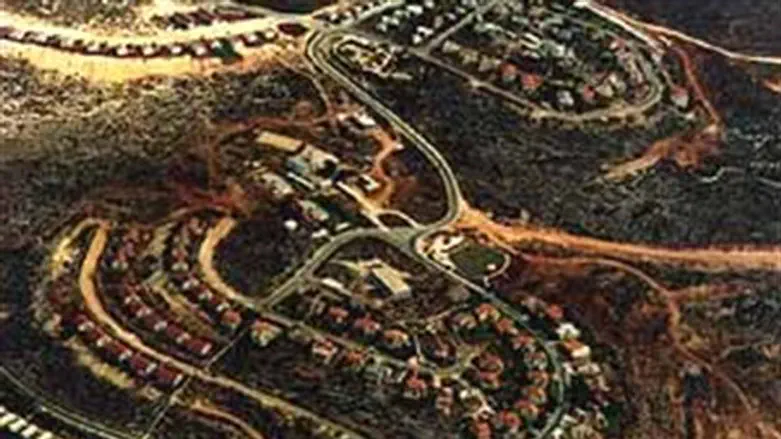
The Civil Administration on Wednesday authorized construction of 878 housing units in Judea and Samaria. The units were approved for towns in the Binyamin region, the Jordan Valley, and Gush Etzion, Ha'aretz reported Thursday.
The approvals had been set to be issued several weeks ago, but were postponed due to the efforts to restart negotiations with the Palestinian Authority. Those talks hinged on the release of Arab terrorists from Israeli prisons, government minister Silvan Shalom said in an interview on Israel Radio Sunday.
According to Shalom, Prime Minister Binyamin Netanyahu was prepared to offer them a building freeze in Judea and Samaria – but the PA rejected that offer, demanding that the terrorists be released instead. The first group of terrorists is set to be released next week, as talks between Israeli and PA officials get underway in Washington.
Construction was approved for 112 new homes in the Binyamin community of Shilo, 559 units in Talmon (north of Modiin), 38 in Kochav Yaakov (northeast of Jerusalem), and 31 in Alon Shvut (in Gush Etzion). Most of the homes were set to be built in communities outside what are termed the “settlement blocs” that are encompassed by the security fence, that the government has said that it does not plan to surrender to the PA under any circumstances.
The Civil Administration's approval is the second in a long list of approval processes construction projects in Judea and Samaria must go through before any actual construction begins. Once approved by the Civil Administration's higher planning committee – the body that gave its approval Wednesday – projects must pass through an environmental committee and a legal committee, and are subject to legal challenges, usually in the form of High Court petitions, by PA residents and Israeli leftwing groups. Finally, the projects must be personally approved by Prime Minister Netanyahu.
Skeptics have accused Netanyahu of implementing a “silent” building freeze in Judea and Samaria, as there is little actual building going on. The fact that the PA rejected Israel's offer for a building freeze did not mean that there would not actually be a freeze, the skeptics said. “We know that the PA accepts any Israeli offer as a fait accompli, even if they themselves reject those offers,” said one source. “It's a fact that the PA has demanded the concessions made by Israel in previous negotiations as a starting point for new ones, even if they themselves rejected those concessions.
There's no reason to believe that this situation is any different,” said the source. “That they put some of these towns on a 'national priority list' for housing is fine, but if no building is approved and there is in effect a 'silent freeze,' it's just adding insult to injury to say that these places now have 'priority' over others.”
But Dani Dayan, chief foreign envoy for the Yesha Council, which represents the Jewish communities of Judea and Samaria, was cautiously optimistic.
"The Yesha Council welcomes the long overdue decision to foster natural development in a number of communities in Judea and Samaria with the preliminary advancement of building permits."
"This is not a dramatic change of policy," he added, "but it stresses the obvious fact that the 368,000 Israeli residents of Judea and Samaria are a living, breathing reality with rights and needs that can not and should not be ignored.”